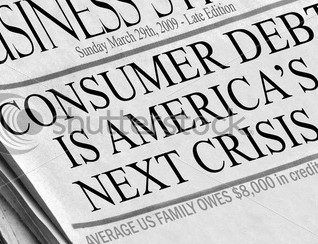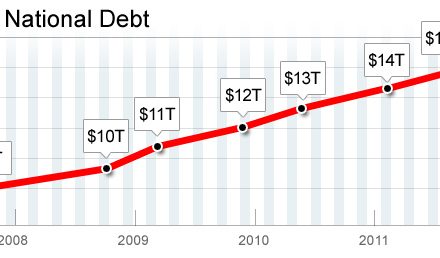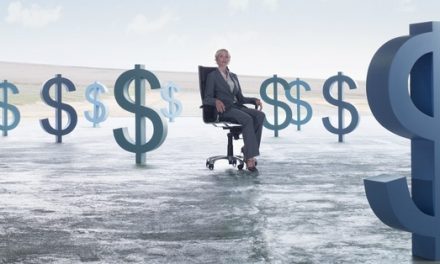By Charles Goyette –Weiss Research
Having a special time of year devoted to giving thanks is one of America’s finest traditions. I’ve always believed that blessings counted multiply. My wife and I make a practice of “doing our gratitude” every night, reviewing all the things for which we are grateful.
But in addition to giving thanks, it is important to be clear-eyed and realistic about the things going on in the world around us.
Let’s be frank. Over the last generation, Americans have become poorer. Meanwhile, the Chinese are becoming more-prosperous.
Since the late 1970s, China’s GDP has grown tenfold. But the American story is best encapsulated in a Milken Institute study.
This study revealed that, over the course of 40 years (1969–2009), the median earnings of American men with college degrees fell by 12% in constant (inflation-adjusted) dollars. For men with only a high-school diploma, earnings fell a staggering 47%.
You’ve probably heard it said that all life is a state of flux between opposites. Day becomes night, young becomes old and even the old eventually become, in many ways, much like infants.
A Powerful Shift Is Under Way
In the wisdom traditions of the world, such sayings are found as “every high thing shall be made low,” or that yin becomes yang and yang becomes yin.
So maybe we shouldn’t be surprised that America has become less-free — and, necessarily, less-prosperous.
And maybe it shouldn’t be surprising that people in China and much of the rest of the world have struggled out from under the boot of the state and, becoming more-free, are also becoming more-prosperous.
Wouldn’t it be a sad irony — sad for us, anyway — if the outcome of this dynamic should be that China increasingly embraces free markets and economic freedom, while the United States continues its downward spiral into statism?
That seems to be the case.
How Did This Happen?
Monetary policy remains in the hands of money-printing Keynesians like Ben Bernanke, while Americans were forced to choose between the two Keynesian presidential candidates — Barack Obama and Mitt Romney. Yet in China, policy-makers have begun welcoming and listening to a more-sensible voice.
A recent Wall Street Journal story says that — three years ago when Keynesian economic interventionism and stimulus spending was all the rage in Beijing and another predictable asset bubble was building in China — Zhang Weiying, who teaches at Peking University, was sounding like Ludwig von Mises, Murray Rothbard and F.A. Hayek and giving speeches titled “Bury Keynesianism.”
Predictably, the Keynesians stimulus spending failed. The turn of events, says the Journal, was “a poster child for Mr. Zhang’s Austrian theories.”
“ … the sheer size of the failure suddenly has people paying attention. ‘The Keynesian policy didn’t deliver what it promised,’ [Zhang] says, so ‘more and more people realize that … when the government makes investment [in] something that’s useless, recession will come.’
“Chinese officials no longer treat Mr. Zhang as a pariah. He reports that Ministry of Agriculture officials tell him they enjoy reading his articles. Other ministries and local governments, including in Henan and Liaoning provinces, invite him to speak.
“He says that when he recently wrote an article praising the late Austrian economist Murray Rothbard, the Communist Party secretary of Shanghai — a fairly high-level apparatchik — told him he liked it.”
The Keynesian experience has never delivered what it promised in this country, either. Not in the Great Depression of the 1930s. Not in the stagflation of the 1970s. And not now.
The Keynesian approach has, however, produced a debt colossus even as it has trashed the currency. Not quite what we would have wanted.
China still has a long way to go on the muddy road to freedom. But it has come a long way since the reformer Deng Xiaoping started making changes in 1979.
As for America?
Turn! Turn! Turn!
Unfortunately, that’s not likely. America has committed itself to far too many of these suicidal Keynesian policies.
The Fed’s promise to print 40 billion new dollars every month has sealed the fate of the greenback … and it’s pushing thousands of savvy investors into one great safe haven:
Gold.
However, as the need for gold grows, so too do the risks of buying it and owning it.
Let’s take a look at some recent developments on the gold front:
• Germany’s central bank is repatriating 150 tons of gold it has stored in New York, London and Paris in response to a court order that it verify its gold holdings. At the same time, we discovered that a decade ago Germany quietly repatriated a third of the gold it had stored in London.
• Such moves have not yet become a stampede, but they will. For now, tiny Ecuador’s government has asked its central bank to repatriate a third of its national gold held abroad.
• This year for the first time, the U.S. Treasury has drilled assay samples to test for authenticity and purity of its gold bars held by the New York Federal Reserve.
• Questions are being asked about inconsistencies in the global supply/demand numbers for gold, questions that point to unreported central bank activities.
• The most recent news in the fake gold front comes from Australia: The Federal Police have been called in to investigate counterfeit Perth Mint gold bars, presumably made in Chinese “forgery factories.”
It is an environment rich with unacceptable levels of risk for investors. But before you make any decisions about gold, consider this.
Nothing will dissuade China from its long-term objective of global economic leadership. And it knows what it needs to do. In my book The Dollar Meltdown, I wrote that while a linkage of its currency to gold is not imminent, “such a move would assure China’s dominance in world commerce for many years to come.”
But judge for yourself what China is doing.
According to ZeroHedge, China’s 2012 gold imports through the end of August amount to 512 tons. That means China has imported more gold in the first eight months of this year than the entire official holdings of the European Central Bank.
It’s being missed by America’s governing classes which, as our debt crisis makes clear, are incapable of considering the long-term consequences of anything.
As for gold as a long-term holding, there are a variety of ways to do it, from taking possession of your physical bullion (bars, coins, etc.), to buying precious-metals ETFs that invest in actual bullion (and not the paper or promises of another institution).
Be sure to check with your tax adviser on the best way to go, but the lesson here is that if countries can’t trust each other, it’s even-more-important for “little guys” like us to do our own due diligence when investing in precious metals with our even-more-precious capital.








